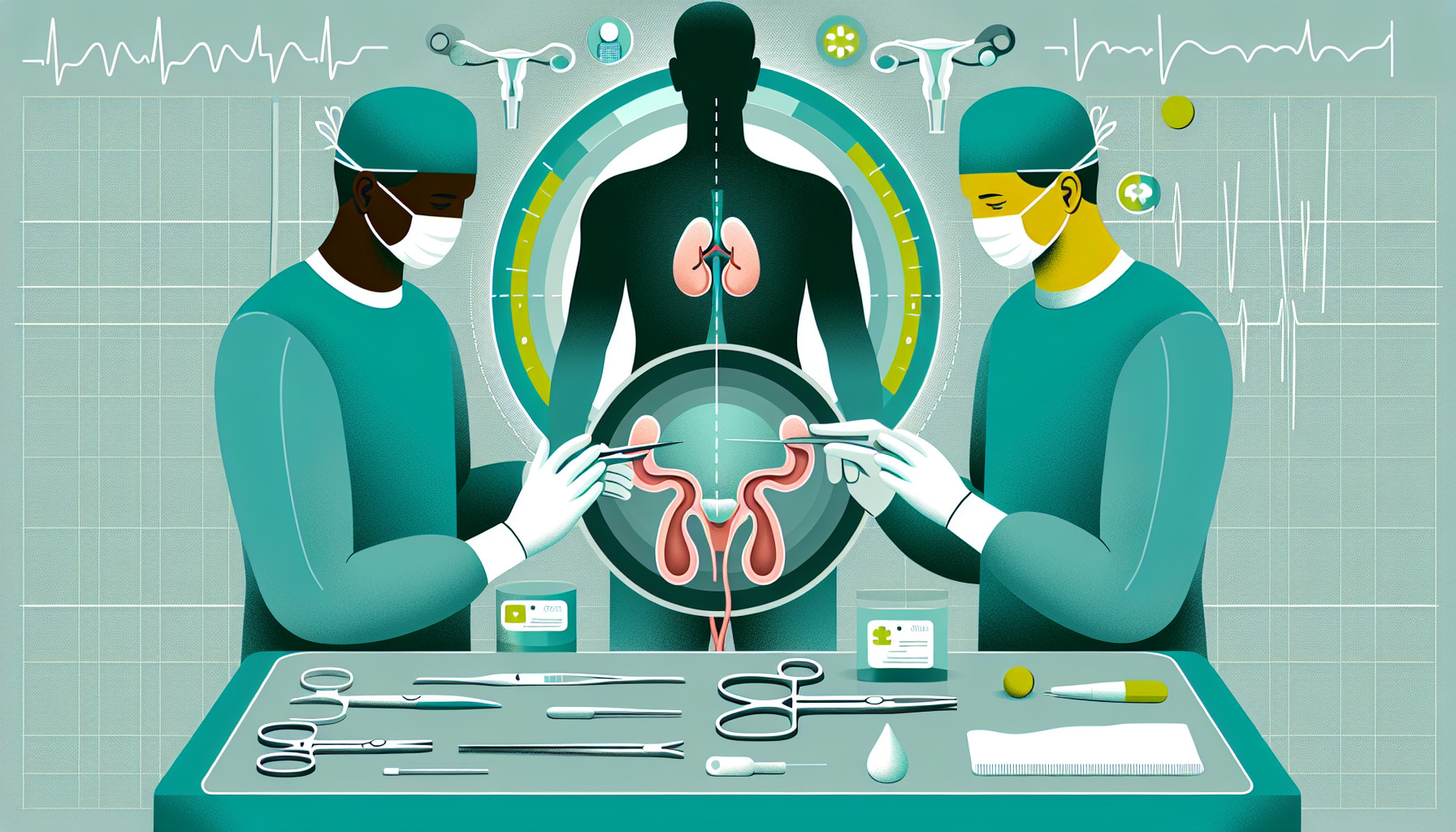Our Summary
This research paper examines whether robot-assisted surgery for bladder cancer (RARC) is more effective than traditional open surgery (ORC). The researchers analyzed previous studies - both randomized controlled trials (where patients are randomly assigned to different treatments) and non-randomized studies. They found no significant differences between the two types of surgery in terms of how much cancerous tissue was successfully removed, the number of lymph nodes extracted, the rate and location of cancer recurrence, and short-term survival outcomes. One minor exception was found in non-randomized studies where robot-assisted surgery seemed to have a slightly better rate of successfully removing all cancerous tissue. However, this difference may be due to biases in the design of these non-randomized studies. Overall, the evidence currently suggests that both types of surgery are equally effective.
FAQs
- Is robot-assisted surgery for bladder cancer more effective than traditional open surgery?
- What are the differences between the two types of surgery in terms of cancerous tissue removal and short-term survival outcomes?
- Was there any difference found in the rate of successfully removing all cancerous tissue between robot-assisted surgery and traditional surgery?
Doctor’s Tip
A helpful tip a doctor might tell a patient about cystectomy is to carefully follow post-operative care instructions to promote proper healing and reduce the risk of complications. This may include taking prescribed medications, maintaining a healthy diet, avoiding heavy lifting or strenuous activities, and attending follow-up appointments with your healthcare provider. It is also important to communicate any concerns or changes in symptoms to your doctor promptly.
Suitable For
Patients who are typically recommended cystectomy include those with muscle-invasive bladder cancer, recurrent non-muscle invasive bladder cancer that has not responded to other treatments, or those with extensive or advanced bladder cancer that has not responded to other treatments. Additionally, patients with high-grade bladder cancer or those with tumors that are large or aggressive may also be recommended for cystectomy. It is important for patients to discuss their individual case with their healthcare provider to determine the best treatment option for their specific situation.
Timeline
Before cystectomy:
- Patient is diagnosed with bladder cancer through imaging tests, cystoscopy, and/or biopsy.
- Patient undergoes various tests to determine the stage and extent of the cancer, such as CT scans, MRI, and bone scans.
- Patient discusses treatment options with their healthcare team, including the possibility of cystectomy.
- Patient may undergo neoadjuvant chemotherapy or radiation therapy to shrink the tumor before surgery.
After cystectomy:
- Patient undergoes recovery in the hospital, which may involve pain management, monitoring for complications, and physical therapy.
- Patient may need to adjust to changes in urinary function, such as the need for a urostomy bag or continent diversion.
- Patient may undergo adjuvant chemotherapy or radiation therapy to prevent cancer recurrence.
- Patient will have regular follow-up appointments to monitor for any signs of cancer recurrence and to address any side effects of treatment.
- Patient may be referred to support services such as counseling or support groups to help cope with the emotional and physical changes following cystectomy.
What to Ask Your Doctor
- What are the potential risks and complications associated with cystectomy surgery?
- How long is the recovery period after cystectomy surgery?
- Will I need additional treatments, such as chemotherapy or radiation therapy, after cystectomy surgery?
- How will my urinary function be affected after cystectomy surgery?
- What type of follow-up care will be needed after cystectomy surgery?
- Are there any alternative treatments or surgical approaches available for my condition?
- What is the success rate of cystectomy surgery for my specific type of bladder cancer?
- How many cystectomy surgeries have you performed, and what is your experience with robot-assisted surgery (if applicable)?
- What is the expected outcome in terms of cancer recurrence and long-term survival after cystectomy surgery?
- Are there any clinical trials or research studies investigating new advancements in cystectomy surgery that I may be eligible for?
Reference
Authors: Iwata T, Kimura S, Foerster B, Fossati N, Briganti A, Karakiewicz PI, Gust KM, Egawa S, Nasu Y, Abufaraj M, Shariat SF. Journal: World J Urol. 2019 Aug;37(8):1557-1570. doi: 10.1007/s00345-019-02708-8. Epub 2019 Apr 11. PMID: 30976902
